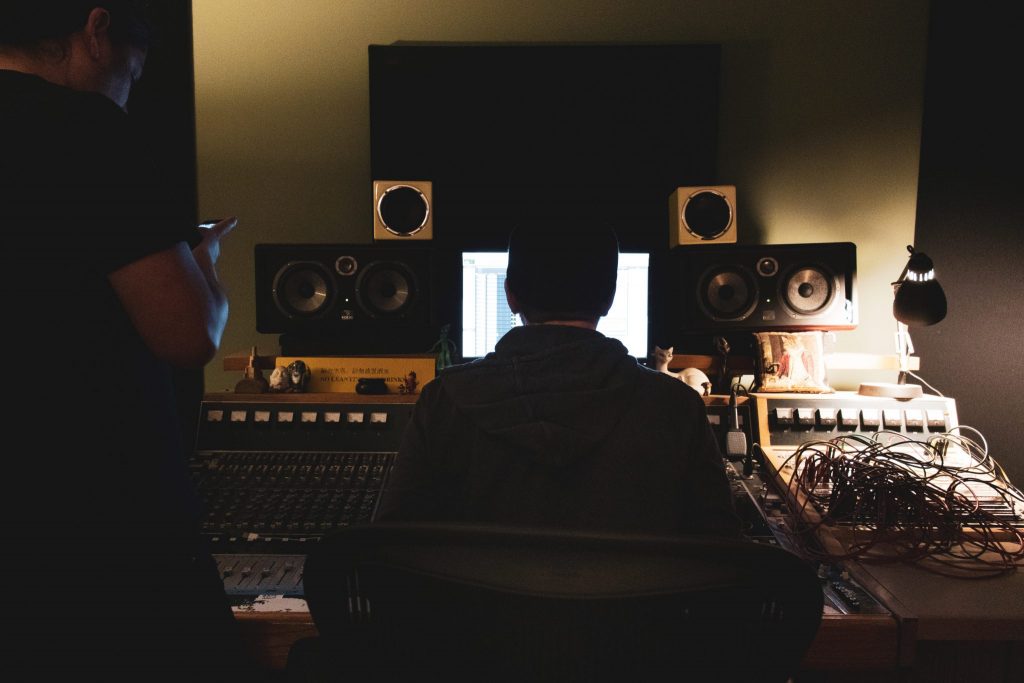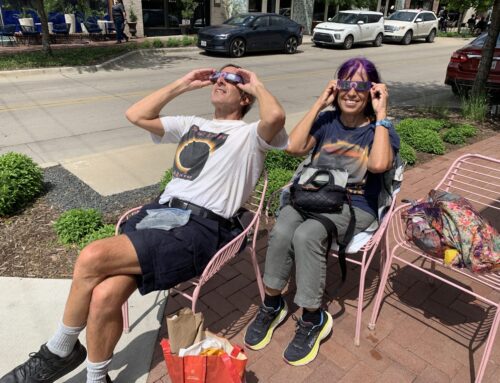
Photo by Alex Gonzalez
Many local artists enjoy working in this Oak Cliff studio as well. Oak Cliff native Ariel Saldivar, aka CAMÍNA, recently recorded her debut EP, “Te Quiero Mucho” at Elmwood. Saldivar, like many of the artists who have cut tracks there, loves the studio because of an abundance of unusual recording equipment. She recorded her debut single “Cinnamon” through a toy megaphone to give her vocals an echo effect.
“He has an abundance of toys in there that aid in creating unique sounds,” Saldivar says. “From his analog Mackie board to his extremely detailed bussing system through custom made synths and pedals. It’s every musician’s dream.”
One of the go-to pieces of equipment at Elmwood is the Neve 53-series console, an audio engineering board that allows producers to mix and edit vocals with various effects. Elmwood’s Neve 53 was originally used on Saturday Night Live.
While the idea of recording in an old funeral home may sound creepy, the spooky element is what draws some artists. Saldivar’s “Te Quiero Mucho” is about death, she says, so she found the idea rather fitting.
“It does have a cavernous element to it where you can get lost in time and space,” she says.
Saldivar didn’t work on the EP with Congleton, who now lives in Los Angeles, but she found musical chemistry with her producer, Oak Cliff-based Donovan Jones, and the studio’s current operator, Alex Bhore, who mixed the album.
Bhore started working as Congleton’s assistant in 2012.
Now, he is “producer, engineer, mixer, musician, composer, faux-therapist, barista and janitor.”
Like Saldivar, Bhore embraces the funeral home past of Elmwood.
“I’ve been lucky to work at the studio as both a player and a producer over the years and it’s always felt really cozy and calm to me,” Bhore says. “If any spirits are hanging out in there, they seem to be — and I hope that they are — supportive of what’s going on.”
Bhore hasn’t recorded a session at Elmwood since the pandemic struck in March. Fortunately, he picked up a scoring gig that allowed him to remain creative.
While he can’t narrow down a single favorite memory of working in Elmwood, he values the opportunities.
“I’ve just spent so much time there, both by myself and with so many amazing, inspiring artists,” Bhore says.





